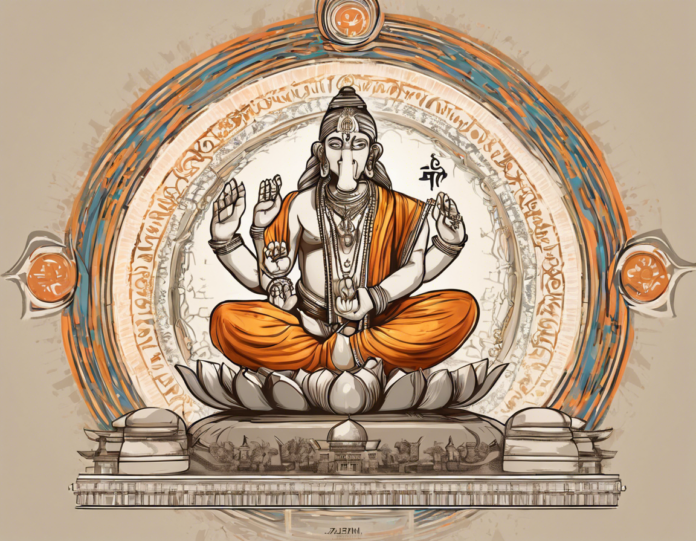Introduction:
Azim Premji University is well-known for its diverse student body and faculty, fostering an environment that encourages open dialogue and exploration of various cultures and religions. One of the prominent religions that often takes center stage in discussions and educational programs at the university is Hinduism.
Understanding Hinduism:
Key Beliefs and Practices:
Hinduism is one of the world’s oldest religions, with a rich tapestry of beliefs and practices. Some of the core beliefs of Hinduism include the concepts of karma (the law of cause and effect), dharma (one’s duty or righteous path), samsara (the cycle of birth, death, and rebirth), and moksha (liberation from this cycle). Hinduism encompasses a wide range of practices, from elaborate rituals and ceremonies to meditation and yoga.
The Concept of God:
Unlike many other religions that have a singular concept of God, Hinduism embraces the idea of a Supreme Being that can manifest in multiple forms and avatars. Some of the major deities worshipped in Hinduism include Brahma (the creator), Vishnu (the preserver), and Shiva (the destroyer). Devotees can choose a deity to worship based on their personal beliefs and inclinations.
Sacred Texts:
Hinduism has a vast array of sacred texts that serve as the foundation of its teachings. The Vedas, Upanishads, Bhagavad Gita, and Ramayana are some of the most revered texts in Hinduism, offering spiritual wisdom, moral guidance, and philosophical insights.
Spiritual Practices:
Hinduism places a strong emphasis on meditation, prayer, yoga, and pilgrimage as ways to connect with the divine and attain spiritual growth. These practices are often deeply intertwined with daily life, shaping the mindset and actions of practitioners.
Hinduism at Azim Premji University:
At Azim Premji University, students have the opportunity to delve into the complexities of Hinduism through various academic courses, workshops, and cultural events. The university’s inclusive environment encourages students to engage with Hinduism in a critical and reflective manner, fostering deep understanding and appreciation for this ancient religion.
FAQs:
- What are the main festivals celebrated in Hinduism?
-
Some of the major festivals in Hinduism include Diwali (Festival of Lights), Holi (Festival of Colors), Navaratri (Nine Nights dedicated to Goddess Durga), and Dussehra (Victory of Good over Evil).
-
Is vegetarianism a requirement in Hinduism?
-
While many Hindus choose to follow a vegetarian diet as a way to practice ahimsa (non-violence), vegetarianism is not a strict requirement in Hinduism. Some sects and individuals may consume meat based on their cultural or regional practices.
-
What is the significance of the caste system in Hinduism?
-
The caste system, although deeply rooted in Indian society, is not an inherent part of Hinduism. It evolved over time and is a social structure that categorizes individuals based on their hereditary occupations. Many scholars and reformers within Hinduism advocate for the abolition of caste discrimination.
-
Can anyone convert to Hinduism?
-
Hinduism does not have a formal process of conversion like some other religions. One can choose to adopt Hindu beliefs and practices through personal study, reflection, and participation in rituals. Many people embrace Hinduism through marriage or cultural immersion.
-
What is the significance of the sacred symbol OM in Hinduism?
- The symbol OM represents the primordial sound of the universe and is considered highly auspicious in Hinduism. It is chanted during prayers, meditation, and rituals to invoke divine energy and connect with the cosmic consciousness.
Conclusion:
Exploring Hinduism at Azim Premji University offers students a unique opportunity to engage with the depth and diversity of this ancient religion. Through academic study, experiential learning, and cultural immersion, students can gain a nuanced understanding of Hinduism’s beliefs, practices, and contributions to global spirituality. By embracing the principles of inquiry, dialogue, and respect, Azim Premji University nurtures a rich tapestry of religious and cultural exploration within its vibrant academic community.
